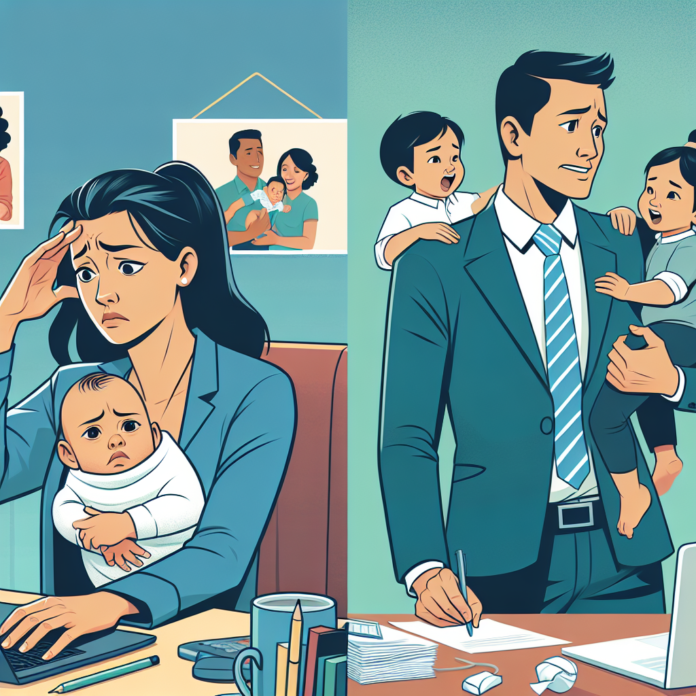
- ORIGINAL NEWS
Women experience a ‘motherhood penalty.’ For dads, there’s a wage ‘bonus’
- SUMMARY
Despite advances in education and leadership roles, women continue to face the “motherhood penalty,” where they experience disadvantages in the workplace after becoming parents.
This stems from the traditional societal expectation that women bear the primary responsibility for childcare and domestic duties.
Even in couples where women earn more than their husbands, they still shoulder a disproportionate burden.
This caregiving demand has negative implications for women’s careers.
Many choose to reduce work hours or take time out of the workforce altogether to accommodate family responsibilities.
Others opt for lower-paying jobs with more flexibility.
As a result, women’s earnings typically drop sharply after childbirth and may remain lower permanently.
This is in stark contrast to men, who experience a “wage bonus” upon fatherhood.
The motherhood penalty also affects female-breadwinner families disproportionately, with high-earning women experiencing a significant decrease in earnings compared to their male counterparts.
The high cost of childcare further exacerbates women’s labor force challenges.
However, the shift towards hybrid work arrangements may provide some relief.
Remote and flexible work options allow women to better balance their work and family responsibilities, potentially reducing the impact of the motherhood penalty.
- NEWS SENTIMENT CHECK
- Overall sentiment:
negative
Positive
“Men don’t face a “penalty” as parents at all. Alternatively, fathers who work full time experience a wage “bonus” when they have children, according to a separate report by the British trade union association TUC.”
“Shifting workplace dynamics may help, said Lauren Sanfilippo, senior investment strategist at Bank of America’s Chief Investment Office.”
Negative
“Even when women outearn their husbands, they still pick up a heavier load when it comes to responsibilities at home, reports show.”
“Despite women’s increasing levels of education and representation in senior leadership positions at work, women are still more likely than men to take time out of the labor force or reduce the number of hours worked because of caretaking responsibilities.”


